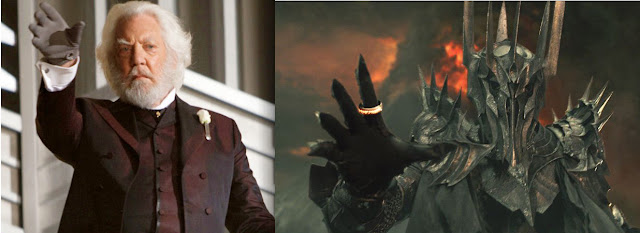I mentioned that I would touch on themes
and morals in this last part of the article. This is the area I have the
largest complaint of. Just as a disclaimer, I’m somewhat of a morally sensitive
guy. Sensitive meaning that I am aware of matters concerning morality. Ethics
and principles are meaningful to me, and so, if something doesn’t sit right
with my conscience, I inspect the problem and work to fix it. Not all people do
this. And I understand that the interpretation of morals is key to how one
would perceive and make an ethical decision. That having been said, this is my
take on the matter.
I generally view books and shows in
two different categories: positive influences and negative influences. Positive
meaning hope filled, uplifting, and inducing a desire to improve one’s state, spiritually,
mentally, or physically. Negative meaning causing the feeling of helplessness,
depression, or hedging up one’s ability to progress in a positive way. Life is
too short to fill my time with material that does nothing but depresses me, does not eventually uplift me,
or invites me to make a positive change in my life.
In Bram Stoker’s novel Dracula, We
are taught, and exposed, to the righteous ideals of Dr. Van Helsing more than
we are taught by his nemesis, Dracula. A novel ruled by Dracula’s demonically negative
thinking would put me out. The novel is not like that though. We see more of
the struggle of the crew of light than that of the adversity. We know how evil
Dracula is because an appropriate amount of time is spent in setting up his character
and twisted alignment; but, the author instead chose to focus on the uplifting
struggle for right, exposing the reader more to the uplifting characteristics
of the struggling characters than that of the downfalls and hopeless
situations. The same can be said of The Lord of the Rings. Sauron is an evil
force ten times more potent than President Snow. The atrocities ravaging Middle
Earth were far greater than Panem, but Tolkien chose to focus more time on the main characters’
positive attributes than on the actual terrible events.
Stories that tend to show the
positive nature of humans often inspire me to strive to obtain those positive
attributes. Throughout most of the first two books of The Hunger Games, I felt
as though the situation was disgustingly dire, the characters were reflexive
and instinctive instead of insightful, and the story provided me with little
hope for the state of humanity. I simply find other books and media that could better
inspire society as a whole to become better.
That’s the difference. Shows or
books like The Walking Dead and The Hunger Games don’t actively inspire me to
become a better person, and in the end, leave me more put out than energized. More attention in those stories is given to the
negative and horrific scenes of bloodshed and the awful state of things than
that of the positive messages of teaching one how to deal with such negativity
in our lives.
I do oppose negative based stories
for my own consumption; at the same time, I realize, to each his/her own. I
just feel my time is better spent consuming stories that actively seek to
inspire and that are more positive than negative in content; since, I’ve found that
if I fill myself with enough negative things, I get depressed, but if I fill
myself with more positives than negatives, I begin improving my nature.



Even though I honestly blazed through all three Hunger Games books and felt I enjoyed them, I too felt that the books centered too much on the negative than the positive. I felt the books had a great message to convey to the world, but it was pretty depressing.
ReplyDeleteIf I think of another popular work of fiction, such as Harry Potter, I feel that the author chose to focus more on the characters and their "light" than on the evils surrounding them. This may be the reason why I can reread the Harry Potter series and don't have a desire to reread The Hunger Games, no matter how much I enjoyed the writing.
Thanks for sharing your thoughts!